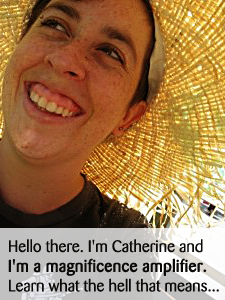Feliks loved Sarah.
Sarah loved guns.
The old story.
It all begins at the local rifle range.
Feliks is there for the first time, with two boxes of .22 cartridges and his friend Dave. Dave has told him that he’s going to love the shooting, and Dave was right.
Feliks and Dave spend an hour target shooting paper targets with Dave’s Winchester bolt-action. When the boxes of rounds ran out, Feliks says, “I’ll buy some more.”
Dave says, “Are you sure, mate? I mean, they’re not super-pricy, but I figure your shoulder’s getting sore.”
It is, but Feliks says, “I’m having a blast. One more box.” Dave shrugs, and Feliks heads to the store.
And there is Sarah.
She’s chatting with the woman behind the counter as she checks a box of ammunition. She’s… arresting, with a pleasant, regular face lit up by fierce determination and intelligence.
Feliks is flat-out instantly mamapajama smitten. He says, “Hey. Buying some rounds for your handgun?”
She turns and with no expert superciliousness says, “Actually, these are for my shotgun.”
“But they’re tiny!” says Feliks, ready to say any number of inane things to keep the conversation with this bright fierce woman going. “I thought shotgun shells were… you know… big!”
Sarah smiles and tells him about how the rounds are actually .410 bore, and they’re used in skeet shooting competitions. Sarah competes, and she comes here every Tuesday to practice, and she’ll see Feliks around, maybe?
At least, that’s what Feliks reassembles later on about the conversation with the help of the woman behind the counter. It was a bit hard to concentrate at the time, you see.
So Feliks goes home and tells his family that he’s joining a rifle club.
His grandfather, Polish and scarred and romantic, threatens to disown him.
His grandmother, Polish and scarred and practical, tells him that she’s proud of him and bakes him lamingtons.
His Dad suspects a romance, and his mother says, “Why not?”
And so Feliks starts learning how to shoot. He stays on the targets, mastering the fundamentals, completely focussed except for the occasional break to wave nonchalantly at Sarah. (She’s around, but usually too busy to talk much. Feliks can remember every single, “Hey. Howareya?” she smiles at him.)
He shoots the paper targets, but his dream is to shoot the skeet.
He daydreams about it, imagines the clay disk shattering into twenty zillion pieces and Sarah running over to high-five him. Then, he suggests getting… an ice-cream! A coffee! A movie! A trip to Fiji! to celebrate, and in his dreams she always says Yes.
Feliks learns fast.
Feliks possesses natural talent, piles of determination, and regular lessons from his grandmother. (This last was a surprise: he had never been told that she was a freedom fighter in Poland during World War Two. Away from her glowering husband she tells Feliks astonishing stories about her work for the Armia Krajowa in between correcting his aim.)
(She also gives Sarah the once-over and decides she approves.)
With all these blessings, Feliks’ progress is astonishingly fast. In only two months, his grandmother says that he’s probably ready to try the skeet.
Sensibly, for despite the pangs of love Feliks is still a sensible lad, he starts on a day where Sarah isn’t present. The clay disk is flung into the air, and again and again and again he misses it.
He practices again next week and misses over and over, but his misses are closer. More practice and he feels that he wouldn’t be world-endingly embarassed to have Sarah see him.
She is only metres away when he successfully explodes his first clay skeet.
He turns to her, face alight, ready for the high-five-ice-cream-three-children daydream. She looks up, nods once, and goes back to cleaning her shotgun.
Feliks takes his grandmother out for ice-cream instead, and tries not to cry into his sundae.
It takes one scoop of time for Babcia Irena to realise that her grandson is less than perfectly elated by his success, and another half scoop to find out why.
Babcia Irena then laughs that wise and slightly malicious old lady cackle that all beings rightly fear.
“Fool boy! One success is not enough to impress her. You’ve missed hundreds of those things, and you could have hit that one by accident. Shoot ten in a row, then she’ll be impressed.”
Feliks nods judiciously, finishes his sundae, and readjusts his daydream.
Feliks keeps shooting at the skeets.
It’s a drizzly ordinary sort of day and he’s feeling a bit tired and not quite in the flow as a sequence of ten are flung.
He misses the first three, and then suddenly Feliks is in the zone.
One sharp crack as a clay disk shatters. Two. Threefour. Five. He misses the last one, and stares bemused at the pile of crockery.
And he turns, to find a beaming Sarah behind him.
You know how the rest of the story goes.
Everyone is magnificent sometimes.
Everyone.
And those occasional moments of magnificence get our attention, briefly.
What holds our attention is consistent magnificence.
Let me say that again:
Magnificence gets our attention. Consistent magnificence KEEPS our attention.
Not one amazing article: a series of amazing articles.
Not one mind-blowing testimonial: a flood of mind-blowing testimonials.
Not one engaging exchange on Twitter: a pattern of engaging exchanges on Twitter.
This is why I am so damn adamant about you only doing your best work.
It’s not because I don’t believe you are capable of producing magnificence from anything you put your mind to. You are. We both know it.
But consistent magnificence? That’s harder.
It means you have to deliver, and keep on delivering, remarkable results… no matter what is going on around you.
When it’s your best work, you can deliver consistent magnificence despite adverse conditions. You know: tech hiccups. Inadequate supplies. Pounding headache. Sick dog.
You’ll find a way to transcend these problems, or even create better work because of your limitations.
When it’s not your best work… magnificence becomes hit and miss. Damn good is likely, but magnificence will never be dependably delivered by your less-than-best work.
And that matters, big-time.
You will never develop the same powerful relationships and reputation with hit-and-miss magnificence that you will through consistent magnificence.
If we trust you to deliver magnificence, you have our attention – and our money. We will be riveted to see what you do next, whether you can possibly keep the amazingness flowing.
With your best work, the odds are excellent that the answer is yes.
Best work = consistent magnificence = squoodles of cash and joy.
I wonder if that’s what you’re aiming for.
Is your goal to knock it out of the park once?
Or is it to knock it out of the park every single day?
The first requires a surge of magnificence, of the creative genius that lives inside us all.
The second requires consistent magnificence, and creative discipline.
Which are you currently using? I’d love to hear from you in the comments.
And if you’re ready to clarify what work is your absolute best, then Goddamn Radiant and I are here to help. Because this is MY bestest work.
![]() photo credit:
photo credit:







